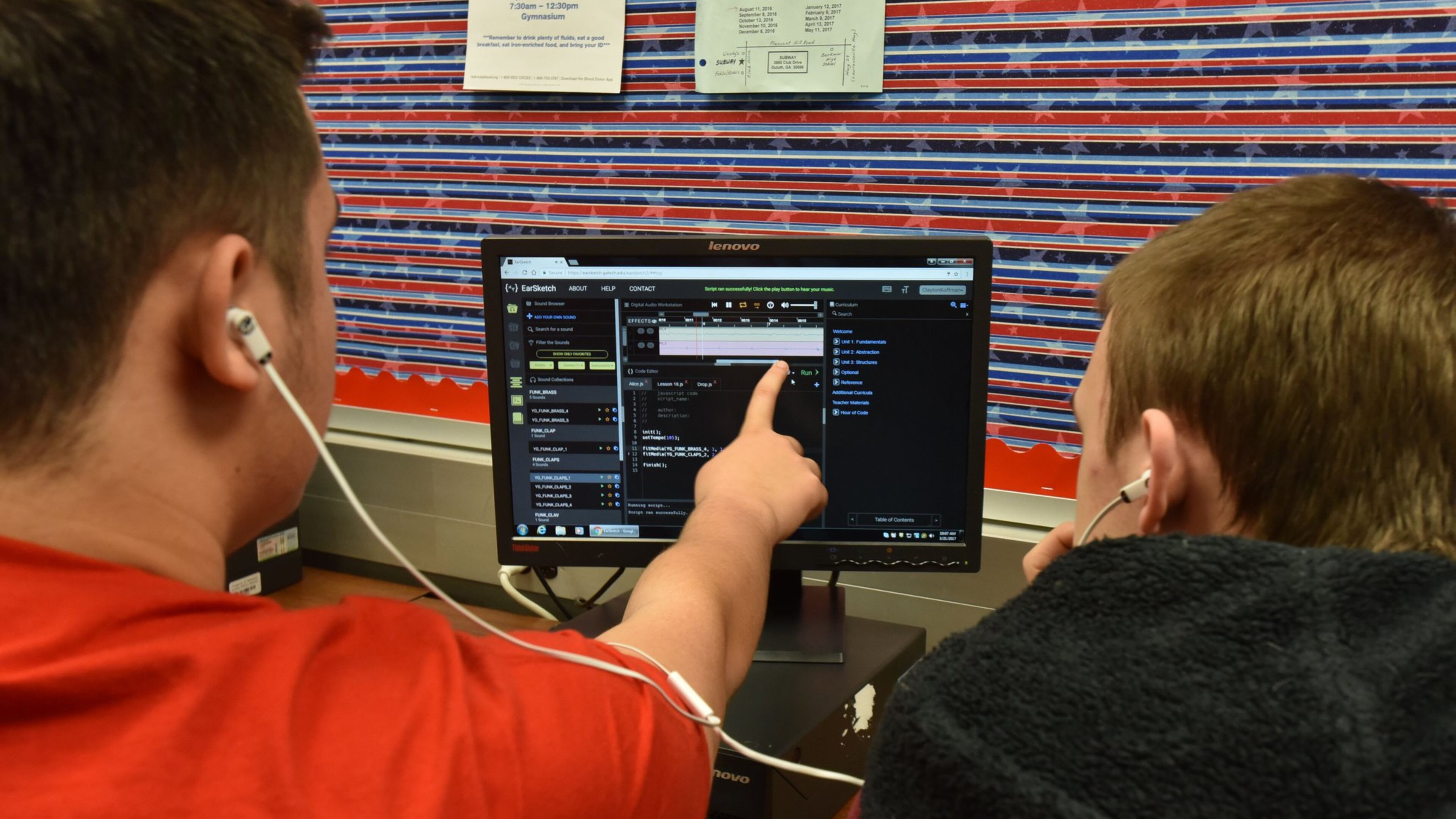Berkmar High course aims to show computer science is for everybody

Berkmar High School senior Iman Alston encountered a problem.
The 17-year-old Gwinnett County student, bright smile and braces, created an image on a computer of a girl selling lemonade, but she couldn’t move a bottle with the drink from the floor to the stand.
Alston changed some code on the computer and, soon, the bottle moved from the floor.
“I got it up there,” she said. “I’ve just got to get it on the table.”
Alston is one of 19 girls in Leah dee Kilgore’s Advanced Placement Computer Science Principles classes. Last school year, there were no girls in a similar class Kilgore taught.
The College Board, which designed the AP course, started the Computer Science Principles course at the start of this school year to get more students who typically participate less in such classes: girls, rural students, African-Americans and Latinos. Berkmar, in Gwinnett County, is one of the public schools in Georgia offering the class.
In recent years, educators have stepped up their efforts to engage more of these students in math, science and technology courses, worried about the performance gap in these courses. For example, a 2016 study of ACT results found college readiness among African-Americans in math and science was at one-third the level of their peers nationwide. In 2013, men outnumbered women nearly 3-to-1 in attaining computing degrees or certificates in Georgia, according to Change the Equation, a coalition aiming to make all students STEM-literate.
Kilgore has a poster board that mentions six-figure salaries in several computer science-related fields. One poster on the wall in her classroom has the picture of Malala Youseafzai, who was shot by the Taliban in 2012 for bucking the regime’s resistance to girls getting an education.
“Every girl deserves to take part in creating technology that will change our world, and change who runs it,” said Youseafzai, 19, a 2014 Nobel Peace Prize recipient.
“When we think about computer science, it’s used in nearly every aspect of our lives. I want solutions that are representative of everybody and the only way you can do that is through collaborative groups,” said Crystal Furman, a former AP computer science teacher in Gwinnett County, who is the director of the AP program’s instruction design and professional development.
Ruby Hernandez, 16, a junior at Berkmar, is a star in the school’s computer science program, but said she occasionally encounters gender bias from some boys.
“They don’t admit it, but they look down on you,” she said.
State leaders, prodded by business leaders in search of students with expertise, have caught on and put more money in such classes. In January, Gov. Nathan Deal announced three rural school districts will receive grants of $30,000 each to implement AP Computer Science courses.
The Computer Science Principles course is designed to teach students about data analysis, how the Internet works and writing programs. The goal is to make the computer science collaborative and fun, not just about someone sitting in a dark room writing computer code. In Kilgore’s class, students are using programs to create animation and music, sometimes simultaneously.
Tuan Le, a 17-year-old senior, used computer coding to create a guitar riff that could spook Frankenstein.
“What is that!” a classmate said as the music played.
Many schools, particularly in less affluent rural areas, lack the money to purchase the technology for computer courses, Furman said. Some minority students shy from such classes because they don't have a home computer, experts say. A 2014 Atlanta Journal-Constitution investigation found white students in Georgia are more than twice as likely than other racial groups to be enrolled in top-flight academic public school classes.
Is this effort working? College Board officials do not yet have demographic data of who’s taking the course, but said higher percentages of girls and black students took the pilot course last school year.
Kilgore said she’s noticed greater interest in her class, particularly from girls.
“It’s about breaking that cycle,” Kilgore said.



